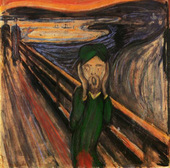.png) Welcome to yet another Paradox mega-campaign! For those who’ve been here before, this will be quite different from Al Andalus and Jerusalem, but for those who have no clue what I’m on about — Paradox Interactive is a publisher known for their grand strategy games, a series of historical sandboxes where you pick a country, like England or the Ottomans or the USA, and guide them through the wars and major events of that time period. I’ll be taking a single save through multiple games, so we can watch as a country progresses (or regresses) from antiquity into the modern day. You don’t need to know any of the game mechanics to follow along, since this LP will focus entirely on the narrative —— the rise and fall of ancient empires, the spread of religion by the word and the sword, exploration and colonisation, imperialism and revolution and migration and more revolution, nation-states and world wars, and who knows, maybe we’ll throw about a few nukes at the end of it all. I’ve played through a few Paradox games before, and there’s a long history of mega-LPs before me, but with the current lineup of Paradox games looking very sleek, I’ve decided to go for something more ambitious than anything I’ve done before ——— I want to cover the entirety of Paradox’s historical grand strategy lineup, starting with… 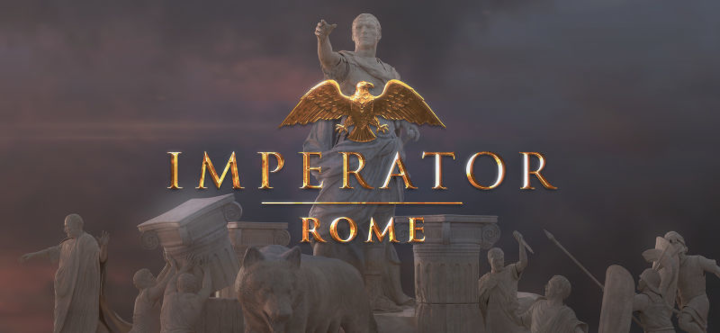 Followed by… 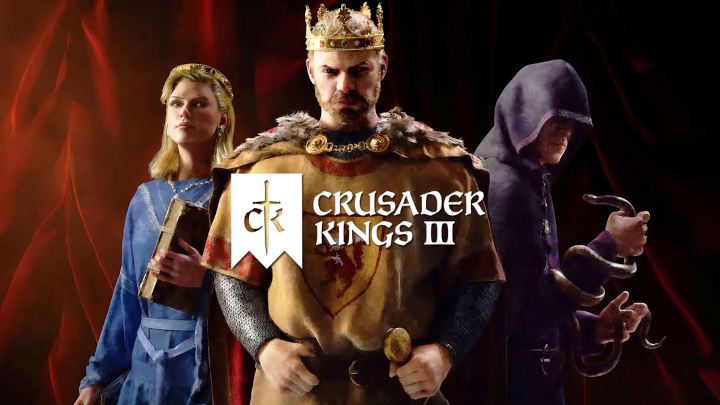 And then moving on to… 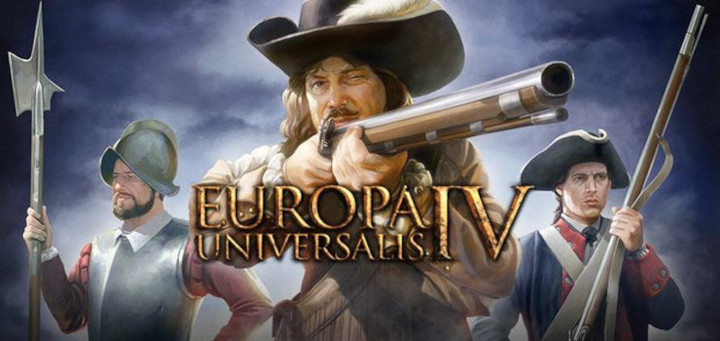 Not done yet… 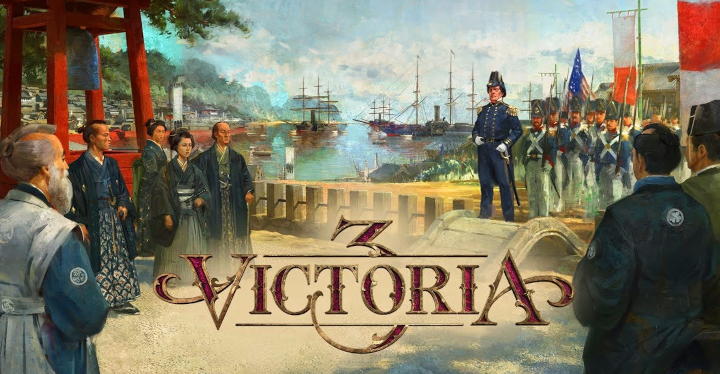 Almost there… 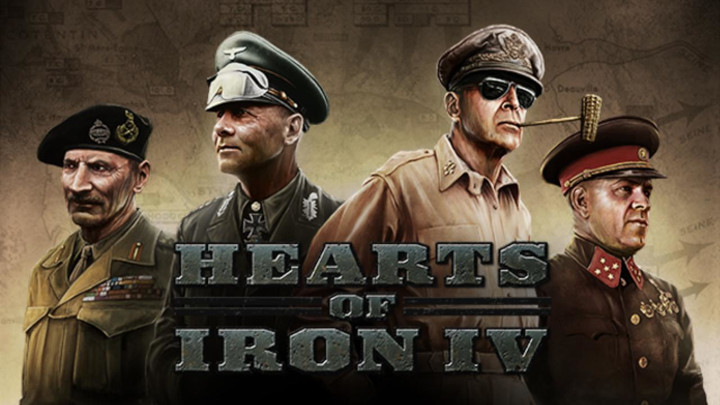 And we're done! No march of the eagles this time! With all that said though, the only thing left is to decide who we’ll be playing as… hashashash fucked around with this message at 21:23 on Aug 16, 2023 |
|
|
|
|

|
| # ¿ May 10, 2024 20:08 |
.png) 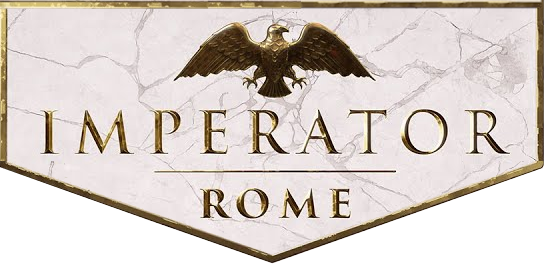 (304 BCE to 250 CE) Part 1 — Prologue Part 2 — Sicilian Wars Part 3 — Uneasy Peace Part 4 — First Punic War Part 5 — Second Punic War Part 6 — Interbellum Part 7 — Third Punic War Part 8 — Interlude Part 9 — Empire Part 10 — Punic Peace 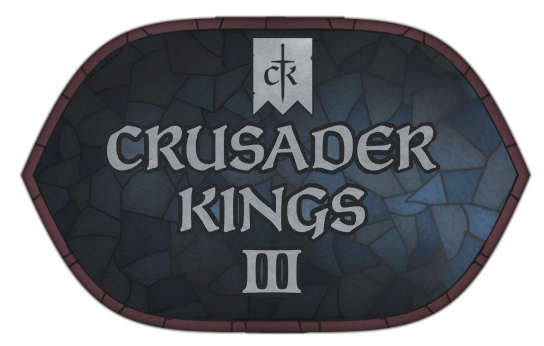 (650 CE to 1400 CE) Part 1 — Prologue II Part 2 — Barbarian Invasion Part 3 — Carthalo and Canmi Part 4 — Across the Narrow Sea Part 5 — New Rome, Old Carthage Part 6 — Bright Elissa Part 7 — Voyages Part 8 — To the Holy Land Part 9 — God and Gunpowder Part 10 — Jihad Part 11 — On the Black Sea Part 12 — Interlude II Part 13 — Papal Schism Part 14 — The Crusade Part 15 — Elissid Empire Part 16 — Second Son Part 17 — The Great Steppes Part 18 — Black Death Part 19 — Genghis Khan Part 20 — Into India 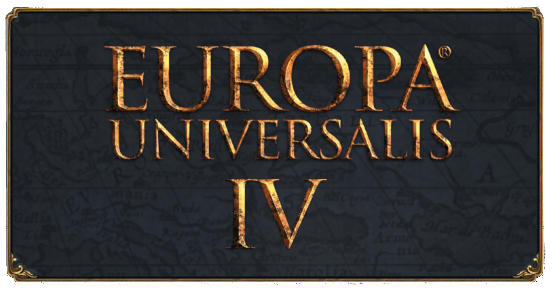 (1400 CE to 1836 CE) Part 1 — Prologue III hashashash fucked around with this message at 19:57 on Nov 21, 2023 |
|
|
|
|
reserved again? why not
|
|
|
|
|
Part 1 - PROLOGUE The year is 304 BCE, and the world is teeming with chaos and chance.  Wars will be won and lost, kings made and unmade, dynasties born and extinguished, empires forged and destroyed, wonders raised and gods torn down — east, west, north, south, the world is full of stories waiting to be written, but all stories have to begin somewhere. Where does this story begin? ———  VOTE VOTE A  KUSH We are the sons of kings and descendants of gods, and yet the scion of shepherds and soldiers now rule that wealthy country cradled by the Nile... but not for long. Our ancestors were Pharaohs, and that is not a thing easily forgotten. “Hear what I have done in exceeding the ancestors, I who is King, the representation of God, the living image of Atum…” - B  TEUTONIA Sit on the edge of the world, where the sea is frozen and drought sweeps across the land, and say that life is easy. Say that living as a slave to the gods is better than making your own destiny. Say that the thin light and long night is safer than the sight of your own blood. Say something, or else take up your sword and march to the beat of a long-awaited dream. “I dream of warm, sun-lit countries…” - C  JUDEA Beaten, trodden, hated, the Jewish homeland is ever threatened by the fortunes of those powers that reign all around. The time has come to break the shackles binding the faithful, and fulfil the destiny that God has ordained. “From the brook of Egypt to the great river, the Euphrates…” - D  ANTIGONIDS The great empire of Alexander has fractured into Diadochi kingdoms that will feud and bleed at each another until one emerges supreme - and one must emerge supreme, or all is lost. “To the strongest…” - E  CARTHAGE The Mediterranean is poised to become the battlefield between the powerful, established Republic of Carthage, and the rising Republic of Rome. Whoever emerges victorious will surely shape the future of the West, and everything that follows. “I will use fire and steel to arrest the destiny of Rome…” - F  ROLL THE FUCKIN DICE If this option wins, I’ll roll a d5 and let the dice gods decide. - One thing to keep in mind - maybe don’t get too attached to any one place. I don’t want to spoil too much, but this LP will be relatively fast-paced and we’ll be moving about a decent bit. Just go with whatever strikes your fancy. VOTE! hashashash fucked around with this message at 17:21 on Nov 10, 2023 |
|
|
|
Hellioning posted:C, because I am always a sucker for underdog stories. yep Imperator is probably my weakest game too (though I haven't played much vic3 yet), and is one of the few paradox games where holding together an empire can actually be a challenge - but that'll just make it more interesting anyways, here's are a few of the short-term aims depending on the choice made - Kush - topple those silly Ptolemies Teutons - unite the Germanic peoples and prepare to migrate Judea - survive Antigonids - reunite Alexander's empire Carthage - expand in Sicily and Iberia, because I'm sure there'll be no new threats emerging elsewhere hashashash fucked around with this message at 18:27 on Dec 21, 2022 |
|
|
|
|
I mentioned this already, but I'll say it again in case people missed it - we won't be staying as the same country/region for the whole LP... maybe not even within Imperator. Still gonna be heavily linked obviously, but I won't spoil anything
|
|
|
|
|
A cheeky tally has things even - A - Kush - 13 B - Teutonia - 4 C - Judea - 1 D - Antigonids - 2 E - Carthage - 13 F - Roll the Dice - 2 Close enough that I'm gonna let it run for another day or so hashashash fucked around with this message at 00:29 on Dec 22, 2022 |
|
|
|
Sanguinia posted:Roma Delenda Est, except in phoenecian. yep that evens them up then
|
|
|
|
|
welp things are still level - so I'm gonna call the vote exactly 6 hours from now, and if carthage and kush still have the same number of votes, i actually will just roll a d2
|
|
|
|
|
I think that puts Carthage 2 votes ahead, with 2 hours to go
|
|
|
|
Tagaziel posted:Can I still vote for Kush? yep, still got a couple hours before the vote closes
|
|
|
|
|
ironic, considering the Aeneid featured Dido's journey a fair bit iirc
hashashash fucked around with this message at 01:22 on Dec 23, 2022 |
|
|
|
|
vote's over, by the way! Carthage has it, by just a single vote I think
hashashash fucked around with this message at 01:47 on Dec 23, 2022 |
|
|
|
Antigonids doing Antigonid things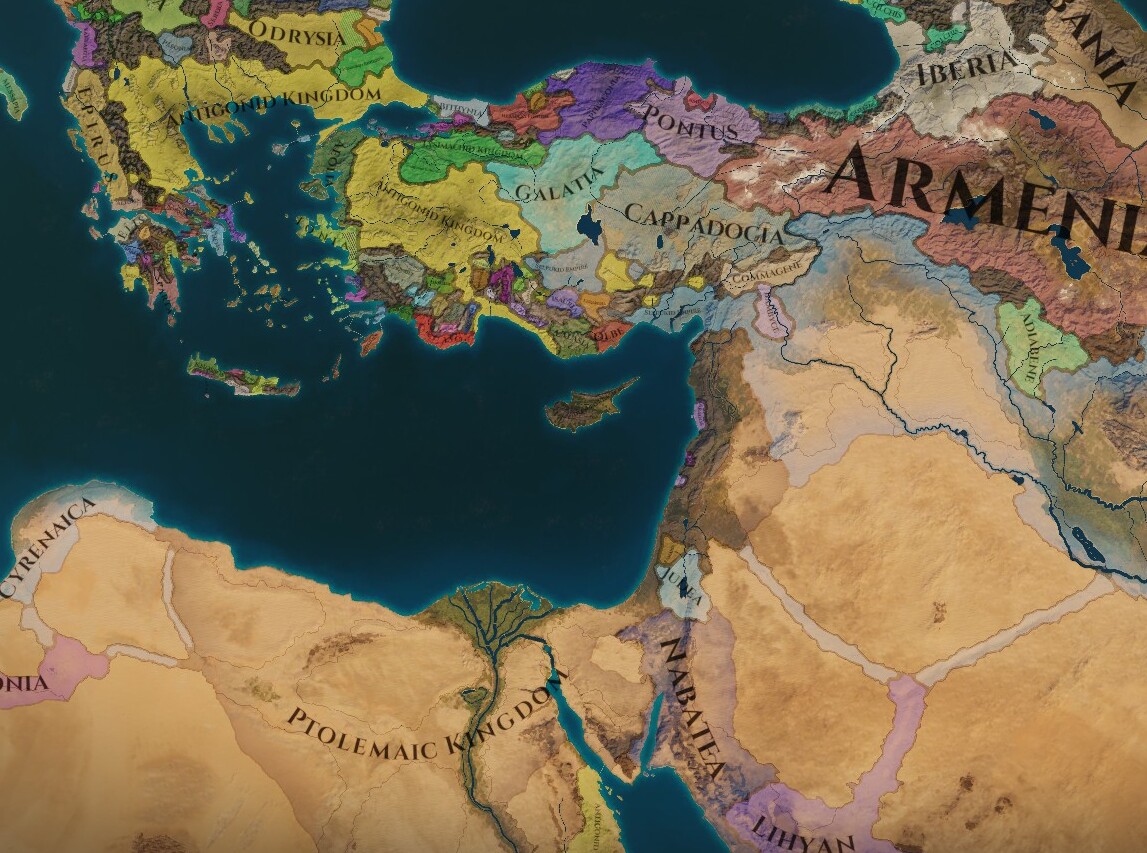
|
|
|
|
 Part 2 – Sicilian Wars – 304 BCE to 270 BCE Carthage.  According to legend, the city was founded by an exile queen – Dido, also known as Elissa – fleeing the court intrigues of Tyre. Her odyssey is the stuff of myth, as she escaped her murderous brother, seized women from Cyprus to mother her people, outwitted a Berber king and founded a new city upon the hill of Byrsa… and then, when faced with the threat of war and forced marriage, she took her own life… and is such a sacrifice, there is great power.  Qart Hadasht, or Carthage, soon outgrew her mother city in Tyre, and over the centuries she contended with tyrants and kings, feuded with Berbers and Greeks, embarked on great voyages into the impenetrable West, seized the sealanes and trade routes flowing between the pillars of Hercules and the great harbour of Tyre… Now, some five hundred years after her death, the city of Dido prospers.  And beyond, the world is yet wild and unknown – to the distant north, where travellers and explorers trade rumours of savage peoples hoarding immense wealth…  To the east, the cradles of civilisation are ravaged by the heirs of Alexander, who now feud after his legacy like dogs at a bone, whilst the ancient and mysterious lands further south whisper of unwritten stories…  And even further beyond, where mere snatches of hearsay give form to the vast and awesome legends of the Indias…  In the midst of all this, lays Carthage. To her belongs a most ancient and gloried history, but her song has only just begun. Once, the city was governed by elected monarchy, but there is danger in placing a crown on the brow of a man and calling him king, and so such things were rightly done away with a long time ago. Instead, as the year 304 BCE dawns, the senate of Carthage meets to elect two Sophets from the great families of Carthage, to rule the Republic for a period of five years.  And immediately, their priorities are made clear –  For too long, the Republic has suffered the ignominy of the Greeks. Year after year, campaign after campaign, war after war, and yet the rich and strategic island of Sicily eludes our grasp – and indeed, just a few years prior, the wretched tyrant of Syracuse, Agathokles, laid siege to Carthage herself, a most heinous crime that has not been forgotten. The newly-elected Maharbal vows an end to the stalemate, and just a year later, he lands on the island with an army of 20,000 Libyan, Numidian and Greek mercenaries.   He strikes across the width of Sicily in an audacious march – a march that is quickly ended after half his troops are ambushed by Agathokles himself, leading an alliance of Greeks and native Siculotes.   The defeat is crushing enough that Maharbal flees back to Carthage, and his term as Sophet ends in disgrace. The mercenaries he left behind, meanwhile, quickly defect to the Greeks in a dispute over pay.   Unsurprisingly, the oligarchs in the senate descended into their usual bickering, bribing one another to pass laws and then strike them down.    The traditionalists of the assembly, on the other hand, insist that the war would only be won once the gods were properly honoured – or rather, once the shrines and temples of the brutish Greek gods were thoroughly desecrated.   But after a succession of corrupt Sophets and a series of accompanying defeats in Sicily, it seems as though this was doomed to end like so many others – that is, until the patriarch of the prominent Barca family manages to get himself elected Sophet…  Shrewd, assertive, and a brilliant commander, Abdmelqart Barca lands in Sicily with a mixed force of Punic levies and Numidian mercenaries; and within the year, he scores three important victories over the Greeks.    Scattering the allied enemy forces, the Sophet then drives towards the ultimate prize in Sicily –  And finally, there beneath the walls of Syracuse, caught in the midst of a most terrible storm, Carthage and Greece clash yet again… and Agathokles can only watch as his army crumbles, as the walls they sought to defend are torn down, as his precious city…  …is brutally sacked, with all her riches carried back to Carthage, and only the moon-and-sun standard of the Republic left behind, staked in the carcass of the Tyrant.   And with the stronghold of Sicily vanquished, the rest of the Greek settlements on the island submit over the next few years, one by one…      So successful was this campaign that Abdmelqart was not only rewarded with a triumph upon his return to Carthage, but his supporters in the senate soon passed a law extending his term of office as well –   And with this renewed mandate, Abdmelqart energetically set to integrating the various Phoenician colonies that pay tribute to Carthage. Before long, the cities of Leptis and Hadrametum, Iol and Thapsus, Emporia and Heraklia, and finally Utica, one of Carthage’s oldest rivals, all bow before the authority of Qart Hadasht.    In the east, meanwhile, Antigonos Monophthalmos perishes in a stunning defeat to a coalition of Diadochi kings, leaving the Seleukids and Ptolemies to partition and then feud over the remnants of his empire.   In the west, and much closer to home, the ever-seditious Numidians have been united under a young king of Massaesylia, who may well pose a threat to Punic holdings along the coast.  Abdmelqart’s lengthened term comes to an end in the year 270 BCE, with the Republic firmly in the ascendance – the surrounding Phoenician colonies are fully integrated, her coastal holdings in Libya and Mauretania are reinforced, and the wealthy isle of Sicily is finally and utterly subjugated.   A long and successful career, with scarcely a stumble… except… In the midst of his Sicilian wars, Abdmelqart had crossed the straits of Messina to disperse a Greek army mustering near the town of Rigon. A short and decisive victory followed, and after some deliberation the Sophet decided to seize the town as well, giving Carthage a foothold on the peninsula that lies just across the narrow waterway…  …listen closely, and already, you may well hear the screeching of tuba, the stamping of legions, and all the sounds of Rome rising to ruin and war. hashashash fucked around with this message at 17:21 on Nov 10, 2023 |
|
|
|
|
I should also add that the reason these Sicilian wars took so long was because, when I declared on Syracuse, the Antipatrids became war leader... only to be taken out by the other Diadochi, and that ended our war for some reason, so I had to wait a while and declare it again Just paradox things I guess
|
|
|
|
Hellioning posted:Huh, what mods are you using to make your windows look that like? Do you mean the darker UI? That's Dark Red UI 2.0 I think I've also got a few others - Better Map Icons, Historical Imperator pack, Invictus, Enhanced graphics and lighting
|
|
|
|
NewMars posted:Aw, crap, that's a hell of a Rome. Are they supposed to take the peninsula this fast? I haven't played enough Imperator to be sure, but I've never seen a game where they don't blob out incredibly fast
|
|
|
|
also, I hate that the game is giving me this option - 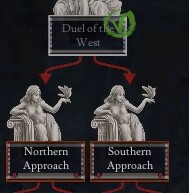 now I actually want to Hannibal my armies across the Alps
|
|
|
|
NewMars posted:This kind of makes me glad I pushed hard for Carthage first: without a player at the helm to stop them Rome looks like it's going to grow out of control and make everything all regular historical. welp, may as well tell you that their expansion only gets faster for some reason also fighting the Romans is a huge pain. who knew
|
|
|
|
Quorum posted:It's a game mechanic: the Imperial Challenge CB works like that. It's unlocked by a late game tech, but some countries get to use it early in specific circumstances (Rome during some early wars, for example, or the Diadochi against each other). ah that would make sense then, I was trying to figure out why they were expanding so much quicker than me hashashash fucked around with this message at 05:04 on Dec 25, 2022 |
|
|
|
 Part 3 — Uneasy Peace — 270 BCE to 220 BCE A rabid wolf sits at our door. Scarcely a generation ago, this wolf was little more than a pup, one with no real authority beyond her own barbarous kin and the unfortunates who surrounded her… but now, the spectre of Rome rises over Italia, casting a menacing shadow that threatens to choke Carthage and cloak the rest of the Mediterranean in her bitter darkness. War is inevitable.  But when the fighting begins, it must be on Carthaginian terms. Therefore, despite an avid minority advocating an immediate war (and an even smaller minority calling for impossible friendships), the senate of Carthage financed an expansion of the navy and reparation of the city walls.   Prudent measures, but nothing that would antagonise the Romans. Instead, the popular assembly directed the Carthaginian war effort towards Carthaginian interests — namely, trade. To better cement her dominance over the maritime routes spanning the Mediterranean, a mandate of war is passed against the bothersome tribes of Sardinia and Baleareis.  And to carry through this mandate, a young and talented scion of the Barca family is appointed as commander: Hamilcar Barca. Ferrying a large force of Berber mercenaries across the sea, Hamilcar set to seizing key fortresses and ports before annihilating the island natives in a string of one-sided battles.    Victory is all but assured, and yet, when young Hamilcar marched on the last holdout on the island — Viniolae, on the northern coast — he found another army waiting, laced in leather and clasping steel and flying blood-red vexilla…  Rome. Hamilcar immediately dispatched messengers to Carthage, requesting the senate’s permission to shear this Roman ulcer from Sardinia, but the orders that arrived some weeks later were not to his liking. Carthage was not ready for war. Despite an impassioned speech in which he insisted that the elephant could slay the wolf, the senate refused to budge its stance — they did authorise an expedition to Greece, to counter Roman influence in the region, but a disgusted Hamilcar resigned his post and departed the army, leaving the senate to appoint another commander (one Eshbaal Magonid, a rival of Hamilcar’s belonging to another ancient Punic family) to lead the effort.  The campaign proved to be short and successful; these Spartans were a far cry from their ancestors who’d once bloodied Xerxes and denied Athens, or even those who outfaced Alexander not so long ago.    Instead, after suffering a string of defeats in battle and siege, the Spartans ceded the island-port of Kythira and pledged to pay an annual tribute to Carthage.   The state of Greece in 258 BCE; Carthage owns Qitera (Kythira) and has Sparta as a vassal, Rome owns Korkyra (Corfu) and has Epirus as a vassal. On the subject of Greeks, word soon reached Carthage that the Massilians were slipping through the pillars of Hercules and into the Outer Seas in search of new trading opportunities (and mythical islands, if the stories are to be believed).  Refusing to be outdone by any wretched Greek, the senate immediately commissioned a merchant-captain by the name of Bodashtart to embark on a voyage in the tradition of the great Punic seafarers — Himilco who explored the vast and savage Europas to the north, and Hanno who sailed into the distant south and trod across Gold-rich lands, consorting with all manner of wonders and horrors.   Bodashtart sails into the West to great fanfare in the year 253 BCE; as he departs, the Sophet watches from the white citadel atop the hill of Byrsa, the walls and shores are thronging with hundreds of thousands of citizens, the merchant harbour and the Great Cothon are both brimming with vessels paying their dues… the Shining City is alive, and thriving.  The senate chambers — or the House of the Adirim, as the vast palace-complex is known in Punic — was similarly packed, with the elderly senators and magisters of the Republic quarrelling and debating to no end. Eventually, in 248 BCE, the traditionalists force through a motion by which another military expedition would be dispatched, this time to safeguard Punic colonies against the self-styled ‘king of the Numidians’, who in recent years had managed to unite the many disparate Berber tribes under his rule.   This expedition soon dragged out into a long and bloody war, one that stretched out across a decade — battles were fought and won at Qishi and Gunugu, ambushes were sprung and suffered at Aras and Turusuctu, there were sieges and counter-sieges, sackings and massacres…     …but Carthaginian wealth would see her through in the end, as a force of 18,000 Greek and Sardinian mercenaries stormed the Berber capital at Siga in the year 236 BCE, bringing the war to a close.   The peace imposed on the Numidians was not lenient; forced to cede their coasts and harbours, open their markets to Punic trade, and abandon any foolish notions of ‘Numidian unity’, it will surely be many years and more before they dare to challenge Carthage again.    At much the same time, rumours and tales continued to trickle into Carthage — including many about Hamilcar Barca, who had not been idle since resigning his position…  Indeed, inheriting Abdmelqart as the patriarch of the Barcids, he employed the vast financial and political prowess of his family to wage an illegal war in Iberia.  Several wars, in fact, and over the course of these wars he quickly proved himself a very capable commander, winning decisive victories over allied Iberian armies at Gadir, and then Kartuba, and then Oretum.       More minor battles followed these, but no less decisive — and with every battle he won, with every year that passed, Hamilcar expanded on his territories in Iberia…    …and in doing so, he may have won vast riches for himself and the Barcids, but he also exploited the immense mineral wealth of Iberia, expanded trade networks for Carthaginian merchants, paved the way for further Punic colonies, and above all, continued to pay tribute to the Ever-Shining City. And then the Romans arrived.  Everywhere he set foot, Carthage staked a claim; everywhere Carthage was, Rome inevitably followed. Italia, Sardinia, Greece, and now Iberia — Barcid Iberia, as far as Hamilcar was concerned… the Romans were intent on blood and war, and they would have it sooner or later. This was the rallying cry with which Hamilcar Barca, newly returned from his conquests and more popular than ever, campaigned in the year 222 BCE, and at long last, the senate answered by raising him to the supreme position of Sophet.  And he wasted no time in raising the levies, recruiting mercenaries, outfitting his warships — and when Hamilcar Barca crosses into Italia a month later, the crescent moon-and-sun disc battle-standard of Carthage is planted firmly into the stony ground.   The first of the Punic Wars has begun. hashashash fucked around with this message at 17:21 on Nov 10, 2023 |
|
|
|
|
The first of a two-parter - currently sorting the next update, should be up in a couple hours
|
|
|
|
MonsieurChoc posted:Ally with the Gauls, I heard they have a secret potion that enables them to resist the Romans. where do you think we sent our explorer?
|
|
|
|
 Part 4 — First Punic War — 220 BCE to 200 BCE The war begins on a dark night, on silent seas —  Darkness that explodes into fire, silence that erupts into deafening chants and war cries; voices bellow and break, oars clash and crack, and thousands of sailors wheel and wrench their wooden behemoths as they dance their deadly dance into one another… The battle of Tyrrhenum is a complete triumph, as 250 Carthaginian warships manage to snare and then destroy almost the entire Roman navy off the coast of Sicily, sinking some 50 vessels along with the legions they were carrying.  An early victory, but an important one, granting Carthage uncontested control over the seas. And this was precisely what Hamilcar Barca was waiting for; as soon as he received the outcome of the battle, the Sophet ordered his forces everywhere to advance — in Iberia, his eldest son led 12,000 native mercenaries into Roman territory…  …in Sardinia and Corsica, his younger son marched another 16,000 Berber mercenaries in a campaign to seize the isles…  …and at the same time, Hamilcar himself led an enormous force of levies and mercenaries, numbering some 100,000 in all, across the straits of Messina and into Italia…  Their advance was stymied by Roman fortresses at Locri and Crotone, and though Hamilcar managed to storm the latter into submission, the former managed to resist for almost two years, long enough to herald the arrival of a 70,000-strong Roman army —  Hamilcar was prepared to meet Rome in any battle where the numbers were even, and so he dispatched an advance force to pick a favourable ground for the fighting… but then 70,000 Romans becomes 100,000, and 100,000 becomes 150,000…  There is a time for battle, and a time to retreat; Hamilcar had no doubts which this might be, immediately ordering a retreat from Italia and leaving his advance guard for dead.  Carthage had underestimated Roman strength, that much was clear. Nevertheless, a wooden wall still separated Punic Sicily from Roman Italia, and so the Sophet decided to play for time by reinforcing other fronts — in Sardinia and Corsica, for instance, there was little resistance, as Roman towns and cities defected to Carthage one after the other.   There were still loyal Roman garrisons in Iberia, but they were small enough that Hamilcar’s sons had managed to seize most enemy possessions before 213 BCE.    That said, while such paltry victories in Sardinia and Iberia were all well and good, this war would be won or lost in Italia — and there, the Romans certainly had the upper hand, not only retaking their captured fortresses, but then besieging the Carthaginian outpost of Rigon. Hamilcar sought solutions, but whilst he scrambled to secure more funds and raise more levies, the town held out for weeks… and then months… and finally years, but Rigon was not impregnable, and when the siege reached its third year in 210 BCE, it seemed impossible that it could hold out much longer… And so Hamilcar decided to throw the dice, and he crossed the straits once more — the battle of Bruttium begins with roughly even numbers, as 80,000 Carthaginian levies and mercenaries crunched into 80,000 Roman legionnaires…  …bodies were pressed close, the empty space filled with sweat and blood and meat, battlelines swaying back and forth at the cost of thousands of lives… but by the second day of fighting, Hamilcar’s tactics saw the Carthaginians seize the advantage…  …only for the numbers to swell with reinforcements on the third day of fighting, with Punic mercenaries and Roman legionnaires flooding onto the battlefield from east and west…  …and slowly, Roman numbers began to tell, as the fourth day of battle ended with thousands more Carthaginian casualties strewn across the mud-caked battlefield…  …and yet Hamilcar refused to retreat, refused to heed his levies or bargain with mercenaries, refused to commit to anything beyond another day, another charge. Instead, there in the midst of battle and surrounded by wolves, Hamilcar vowed to his troops that he would return to Carthage in victory, or break his body and forever be buried amongst Romans…  …  On the fifth day of battle, the Romans break before Hamilcar Barca. In fact, it was an impromptu charge of war elephants that turned the tide of the battle, with the bloodstained, sweat-soaked Sophet watching firsthand as the wolves scattered before the earth-breaking stampede of the gargantuan beasts. They were terrifying weapons moulded by the gods themselves, and they may well have won the war for Carthage.  So it wasn’t long before Hamilcar began recruiting additional cohorts of war elephants, and not just the African variety; he dispatched traders into the East to search for Asian and Indian elephants, much larger and more fearsome than their African cousins, and bring them back to Carthage.  It would be many years before their populations were stable enough for battle, however; in the meantime, Hamilcar had a war to win, and he pressed his advantage without delay, pinning down a large army of 70,000 Romans (originally intended to reinforce the battle at Bruttium) and driving them back into the mountainous Italian interior.    On the Iberian front, meanwhile, the Romans managed to reinforce their starving, disease-ridden garrisons with 30,000 legionnaires —  Carthage responded by sending another 16,000 reinforcements of her own; this turned out to be enough for the young Barcid general to outwit and then overwhelm the Romans, scoring a series of decisive victories at Ilounon and Begastrum, before overrunning the rest of Roman Iberia.       This string of victories would come to a sudden end in 205 BCE, however, and not on the battlefield…  Whilst besieging Crotone for the second time, Hamilcar Barca was caught by some sickness running rampant through his camps. Whilst his physicians initially hoped for a quick recovery, his condition only worsened, especially when word reached him of a stunning defeat, this time on the seas —  Somehow, the Romans had not only managed to construct an entirely new war fleet, but they did so in secret, and then they ambushed the Carthaginian navy in the straits of Messina and… …and mirroring this battle on the seas was a sudden assault on land, as a new Roman army of 65,000 caught the 50,000-strong Carthaginian army besieging Velia unawares.    With their Sophet and supreme general unable to even rise from his sheets, the Carthaginian forces are scattered and the siege is lifted.  To make matters worse, these defeats coincided with several mutinies, both in Italia and Iberia — though coincidence is too strong a term, and there was surely Roman gold weighing the pockets of many conspirators…   All of this together finally forced Hamilcar Barca to commit to peace talks, though he did his negotiating from the sickbed. Despite the recent losses, Carthage’s occupations gave her the better of the talks, and when the terms were agreed and signed in the year 201 BCE, they were to her advantage —  First and foremost, the ceding of further territories in Italia, giving Carthage a firmer grasp on the peninsula.  Second, the transfer of the entirety of Sardinia and Corsica, securing Carthaginian domination in the Mediterranean.  Third, and most important to Hamilcar, was the withdrawal of Roman forces in the west to behind the River Iber, which henceforth would be the delineating border between Carthaginian and Roman interests in the region.  The gods give with one hand, however, and take with the other. Just weeks after the peace is proclaimed in Carthage, Hamilcar Barca succumbs to his sickness, leaving behind an altar in the great temples of the Ever-Shining City, a legacy of triumph in Iberia and Italia, and an oath to his young sons, who go by the names of Hannibal and Hasdrubal. But this victory of elephant over wolf was not decisive, and history would remember it as but the first of the Punic Wars — a struggle that would not end until Roman pelts hung in the house of the Adirim, or Carthage was razed to the ground. hashashash fucked around with this message at 17:21 on Nov 10, 2023 |
|
|
|
|
yeah, i was quite suprised at the numbers Rome could repeatedly bring to battle, even after killing hundreds of thousands of them tbh not too sure how to actually destroy them if they continue to expand like maniacs, even this war took us to our limits in terms of money and manpower
|
|
|
|
Hellioning posted:We cannot kill the Rome but maybe we can contain the Rome until Rome falls break to its greatest enemy, itself. the bigger AI empires get the harder it'll be for them to stay together - so yeah this unironically seems like the best move rn
|
|
|
|
also, some spicy AI art of "Carthage versus Rome" got the Romans right, at least
|
|
|
|
 WAR OR NO WAR WAR OR NO WAR  Alright, so I just started playing through the next update and this event shows up -  For context, we are at peace, the Romans are currently warring in Gaul, and our truce has literally just ended... I'm really torn as to which option to go with, so Ima open it up to thread for a short informal vote - WAR with ROME - yea or nay
|
|
|
|
Quorum posted:Yea. With any luck we can at least hold the seas and limit the damage in the event a war goes poorly, and if the war goes well we have a chance to wound the eagle. yep, the main reason we lost that sea battle last time around was because I split the navy in two (I was also too fixated on iberia so i never saw it happen but never mind that)
|
|
|
|
|
yep, very much one sided, guess it off to another war...
|
|
|
|
idhrendur posted:As the converter guy, I want to make my usual offer with megacampaigns I read - when it comes time to convert, let me know if there's any help or shall tweaks you need to s given converter and I'll see what I can do to help. sweet, thanks! I usually hand convert, but the converter looks really good so i'll probably use it this time around, and then edit the mod from there Finnish Flasher posted:Are all of the imperator religions available in ck3? I think the converter puts them together for ck3? If not I'll just add them manually
|
|
|
|
|
seriously though what would the phoenicians have called China
|
|
|
|
Rubix Squid posted:Aramaic and Hebrew seem to be the closest surviving relatives. If it's anything like what Rome called China then it'd be "Land of Silk". yea jokes aside you can kinda work out a lot by using Hebrew to fill in the blanks - but I think the Romans are prevalent enough in places like Gaul and Italy that, if Carthage does eventually destroy Rome, they would probably just adopt and alter the Roman names for a lot of things then with southern Mediterranean, the Carthaginian names for a lot of places already probably had some impact on modern names, like Spania for Iberia, so those can be freely used
|
|
|
|
 Part 5 — Second Punic War — 200 BCE to 150 BCE For twenty years, the elephant and the wolf grappled over domination of the Mediterranean, with both Carthage and Rome losing far too many lives in devastating battles and spending unfathomable amounts of gold on their now-sunken navies. Carthage might have emerged as the victor, but her victory was narrow enough that another conflict between these great powers of the ancient world was all but certain.  Nevertheless, with the death of Hamilcar Barca and the election of his successor, many in the Ever-Shining City might have expected a period of peace and recovery to follow… But the new Sophet, Eshbaal Mago, had anything but peace in mind.  The Magonids were amongst the most oldest, richest, and most influential families in the Republic, with many from their ranks serving as senators and Sophets over the decades and centuries, including Mago who was a king of Carthage, Hamilcar who became the protector of Punic cities in Sicily, Hasdrubal who was made dictator no less than eleven times, Himilco who sailed into the north and set foot on those rocky lands called Prytain… and many, many more. Eshbaal inherits their name and legacy, and yet, over his lifetime he has seen another family rise to prominence in the Adirim, to riches in Iberia, to eternal fame in Italia — Barca.   Carthaginian shekel dated to the 2nd century BCE, believed to have been minted in New Carthage and depicting Hannibal Barca, son of Hamilcar and lord of Spania. But no longer. Hamilcar was dead, his sons were meddling in Iberia, and Eshbaal was raised to the supreme position in the Republic. And just days later, the new Sophet declares war on Rome.  Rome had broken none of the treaties imposed on her in the aftermath of the First Punic War; in fact, only a couple years had passed since those same treaties were signed and ratified by Hamilcar himself. But the new Sophet did not care. Rather, he and his Magonids claimed that the Barcids had sought peace at an inopportune time, that Rome herself might have been taken had Hamilcar not been so mentally frail and physically inept. A mistake that Eshbaal would soon rectify.  The declaration of war was well-timed, as the scattered Roman navy immediately comes under attack all across the Mediterranean — the Punic navy suffered surprisingly heavy losses, especially in the battles for the straits of Messina, but after several months of back-and-forth, they managed to seize control of the seas spanning Rome and Carthage.       The legions of Rome were also tied down in the north, campaigning in Gaul, so when 100,000 Punic levies and mercenaries crossed from Sicily into Italia just weeks later, they quickly overwhelmed the hastily-raised, numerically-inferior armies thrown against them —    The gods were surely with Eshbaal as well, because after a lengthy siege, a disaffected Greek sympathiser surrendered the city of Crotone to him; this was followed by Nuceria Alfaterna before the end of the year, and the year after that saw the capture of Tarraco and Iuncaria…     And still, apart from a few scattered battles against locally-raised levies, there was no answer from Rome.     So when the campaigning season of 192 BCE began, Eshbaal led his forces down the Via Appia, further and further north, until at long last, as winter crept across the farmlands and plantyards of Latium Novum, the city of Rome came into sight…   The Sophet did not test his patience for long, immediately putting the city to siege. But the Romans would not capitulate at the mere sight of a Carthaginian army; not only did they withstand the daily assaults, nighttime charges, threats of massacre… but they mounted sorties, they raided supply lines, they blithely and arrogantly resisted Eshbaal at every turn. It was almost two years of siege before the walls were finally won, but by then, it was already too late.   The Romans had evidently ended their wars in Gaul. They arrived with a brute and terrible ferocity, with tens of thousands of legionnaires smashing into Punic forces even as the citizen levy within Rome launched a vicious sortie. Caught between the besieged and the relief, the disease-ridden Carthaginians were handily defeated, with any survivors driven south and slaughtered —    Worse and worse, the Carthaginian navy patrolling the straits of Messina was engaged in battle a few weeks later — and somehow, despite their superior numbers and warships, they were utterly annihilated by the Romans (who were commanded by a blinded general by the name of Publius Scipio), with 162 sunk and another 29 captured.     From conquering hero to utter catastrophe, in the space of a month… rather than return to Carthage and face his shame (or perhaps realising that the penalty for his failure would be execution), Eshbaal commits suicide in a small, dingy hostel somewhere in Bovianum. His body is never recovered.  Word of these reversals reaches Carthage a few weeks later, and the distraught senators turned on the Magonids en masse, raising a prominent noble by the name of Gisgo Gisgo to the position of Sophet, investing him with the powers of dictator, and directing him to take control of the war before it was too late.  The news slowly trickled into the West as well, where the talented son of Hamilcar Barca had been ordered to seize the remaining Roman possessions in Iberia.  These possessions amounted to just a few scattered settlements along the River Iber, however… a small and unimportant task, and a far cry from the great tactical masterpieces his father had overseen during the First Punic War, this was no doubt an attempt by the Magonids to sideline the heirs of Hamilcar. But Hannibal Barca was never meant for small, unimportant things.  He might not have control over the navies of the Republic, but Hannibal had the men, he had the money, and he had more than enough ambition — and so, in the year 178 BCE, Hannibal embarked on perhaps the most audacious campaign in Carthaginian history…    3500 Punic infantry, 5000 Iberian archers, 8500 Numidian cavalry, 8000 Gallic auxiliaries, 3500 Celtic spearmen, 2000 Balearic slingers, and 500 war elephants — Hannibal leads them all on a year-long march across the River Iber, through southern Gaul, across the River Rodonus, into the Alps and out again. He emerges from the mountains with his army (mostly) intact, and before him stretches plains and valleys, cities and towns, battle and siege, victory and defeat, glory and everlasting fame…  But none of that would come to pass.  Instead, Hannibal’s army is ambushed as they attempted to cross the River Trebia; the Carthaginian forces are slain to a man, and Hannibal himself is seized and then crucified by the Romans — many of whom had lost fathers, brothers, sons to his infamous father. And now, they were avenged.  The death of Hannibal and destruction of his army plunged Carthage into mass hysteria — the priests curse the names of Mago and Barca both; the senators threaten one another with exile and execution; there are mass sacrifices conducted in the streets and alleyways of the Ever-Shining City; and in the palace atop the hill of Byrsa, the Sophet… the Sophet realises that this war cannot be won.  But he will not admit defeat, either. Not before he had his say. And so new taxes were levied, loans taken, funds raised; the weeks stretched into months and seasons blurred into years, and the war was prolonged indefinitely.  The Romans took advantage of Carthaginian inactivity by crossing the straits of Messina and overwhelming Sicily, before invading and seizing the isles of Sardinia and Corsica as well.  In the midst of these years of woe and misery, Bodashtart — the explorer dispatched into the West some forty years ago — returned to Carthage in triumph. Tellings and retellings of his adventures capture the imagination of the citizenry at large, and Bodashtart is proclaimed a national hero by the Adirim.  Once they had retaken their lost territories in Gaul, the Romans also launched an invasion into Iberia. Hasdrubal, Hamilcar’s second son and Hannibal’s brother, managed to mount an effective resistance, but outnumbered and outwitted at every turn, he is forced to fall back time and again, until finally the Romans besieged and seized New Carthage in 158 BCE.  Still, this Iberian campaign bought precious time for the Republic, and the Sophet used it to challenge the Roman supremacy at sea and on land — the Punic navy was entirely reconstructed (this time with many more tetreres and hexeres), the largest mercenary companies available were recruited (including two from Egypt), and a new plan (just as ambitious and foolhardy as Hannibal’s) was devised. Finally, in the year 155 BCE, over a decade after he was elected Sophet and ordained dictator, Gisgo was ready to put his plan into action. And so, once the appropriate sacrifices (animal and otherwise) were made, an army of 80,000 Berbers and Libyans, Greeks and Egyptians took to the sea…  …and just a week later, they sight the Roman navy in open waters. At that moment, in that place, the destiny of the West might have been decided once and for all…  But the Carthaginians slip away, and the Romans fail to pursue. Perhaps they assumed the enemy was making for Sicily or Sardinia, and resolved to ambush them. Perhaps they were not keen on battle in the open seas, where they were less experienced. Perhaps, perhaps, perhaps, none of that mattered, because the Sophet made fast for a different target altogether — Rome itself.  Taken completely by surprise, the city was defended by only a token garrison — but even so, wolves were wolves, and they fell on the Carthaginians with desperate savagery.   Weathering these skirmishes, the Sophet led his 80,000 on a forced march down the Via Ostiens, and within the week, he had Rome entirely surrounded…  There is no attempt to starve them out this time; instead, the Sophet throws the entire weight of his army at the city without care for casualties or deaths, and within three weeks, the walls are breached; another two weeks, and the seven hills are stormed; just a few days later, and the Curia Hostilia is captured… After a siege of only sixty days, Rome has fallen.   The peace that followed was fair — more than fair, considering the entirety of the Roman Senate was prisoner to Gisgo — with the Romans agreeing to abandon their occupations of Punic territory, and the Carthaginians in turn withdrawing from Italia and Greece. And with that, after almost half a century of war… Peace.  But this peace is merely a return to the status quo. Carthage maintains her stranglehold over the maritime trade of the Mediterranean, Rome has the freedom to expand into Greece and Gaul, and there is little doubt that a Third Punic War lies on the horizon… And this time, there is a sense that it will be the last. hashashash fucked around with this message at 17:22 on Nov 10, 2023 |
|
|
|
|
I'm not amazing at Imperator, so I put it down to them having a way better general (even if he is blind), but tbh I'm not sure why we were losing so many ships to the Romans oh, and I just can't apologise for trying to Hannibal the Romans, I had to give it a shot
|
|
|
|
Asterite34 posted:What an absolute clusterfuck that was, jeez. Fifty years, who knows how much of our treasure, and a dead Hannibal, all to end up where we started. yeah felt a bit cheap to grab their capital for better peace terms, but the Romans did it a bunch of times historically so I figured why not
|
|
|
|
NewMars posted:And people were saying we should maybe wait: nope, Rome is scarier every day. tbf it's been like 70 years of war and Rome is still stupid strong -- so the plan now is to have a bit of peace, save a ton of gold, go ham on mil tech, triple the size of the navy, then go at them one more time
|
|
|
|
Fivemarks posted:Jesus loving christ, how strong are these Rome buffs? They definitely get permanent bonuses to army morale and discipline from decisions, and I think the Invictus mod gives more bonuses via missions
|
|
|
|
|

|
| # ¿ May 10, 2024 20:08 |
ThatBasqueGuy posted:Actually did we manage to save any of Gaul with our crash dummy tactics? At least we might be (somewhat) forestalling their blobbing everywhere else with this silliness eh they did have to peace out of a couple Gallic wars, yeah, but as soon as our war ended (literally like a month later), they declared for something in Greece
|
|
|
|



